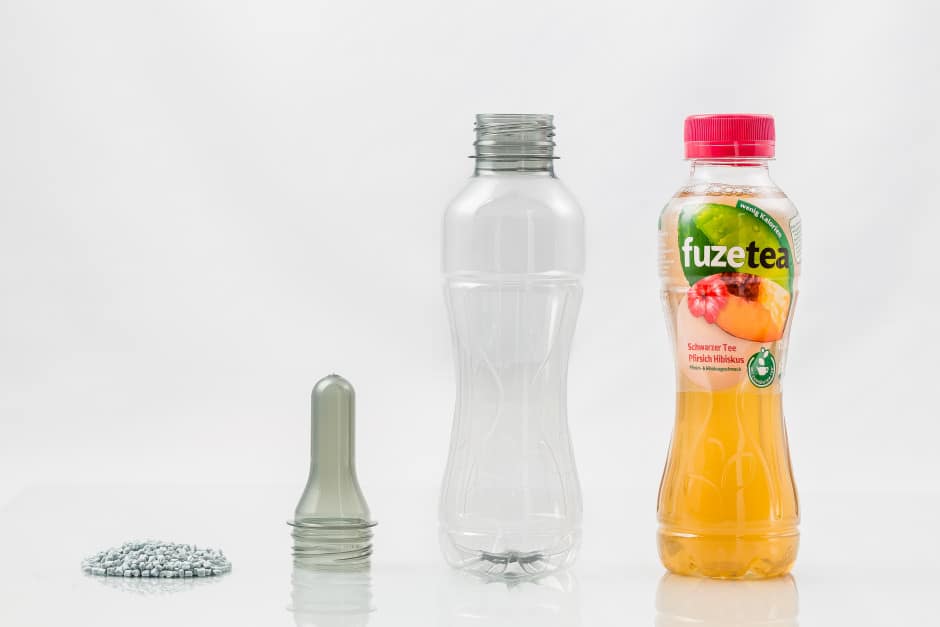Coca-Cola in Western Europe today takes another step forward in removing virgin fossil-based plastic as Coca-Cola in Germany announces it will achieve a share of recycled material of around 70 per cent for PET non-refillable bottles in 2021 as part of its journey towards 100% rPET for its entire locally produced portfolio.
A central principle of Coca-Cola’s sustainability strategy is bottle-to-bottle recycling of beverage bottles as part of a low carbon, circular economy. That is why it is taking another big step in Germany towards 100% recycled or renewable content for its PET non-refillable bottles: the PET bottles of the ViO, Fuze Tea and Powerade brands will be completely converted to 100% rPET. For all other brands, all bottles up to a size of 0.5 litres as well as the 1.5-litre and the 2.0-litre bottles will transition to be made entirely of 100% rPET.
In its efforts to make PET non-refillable bottles more sustainable, Coca-Cola is also investing continuously in returnable packaging in Germany including investment in new refillable production lines, returnable containers, the expansion of the refillable bottle pool and new returnable crates in Germany. Most recently, two new refillable bottles were introduced to the German market in 2019 with the 1-litre glass bottles for Coca-Cola Classic, Coca-Cola Zero Sugar and the mineral water ViO. These investments are to be continued this year, including a new 0.4-litre refillable glass bottle.
“By systematically switching our non-refillable bottles to recycled PET, we are taking an important step towards a circular economy in which we avoid the use of primary raw materials, such as virgin fossil-based PET, as far as possible and reuse recycled materials. We had set ourselves the goal for Germany of having a share of 50 per cent rPET in our non-refillable bottles by 2023. We are now reaching this target two years earlier than planned and will, in fact, significantly exceed it.”
Tilmann Rothhammer
Managing Director Customer Service and Supply Chain at Coca-Cola European Partners Germany
The switch to rPET involves investment and overcoming challenges. For example, Coca-Cola is spending more than €15 million this year to procure the recycled material, which has a price premium compared with virgin material. In addition, high-quality, food-grade rPET is not yet available in sufficient quantities to convert all of the company’s PET bottles in Germany. Coca-Cola is therefore investing in innovative emerging recycling technologies, such as CCEP Ventures funding of CuRe Technology, on the one hand and in long-term supply agreements with recycling partners on the other, in order to promote capacity expansions and innovations.
In its efforts to make PET non-refillable bottles more sustainable, Coca-Cola is also investing continuously in returnable packaging in Germany including investment in new refillable production lines, returnable containers, the expansion of the refillable bottle pool and new returnable crates in Germany. Most recently, two new refillable bottles were introduced to the German market in 2019 with the 1-litre glass bottles for Coca-Cola Classic, Coca-Cola Zero Sugar and the mineral water ViO. These investments are to be continued this year, including a new 0.4-litre refillable glass bottle.
Packaging 360 is a comprehensive knowledge sharing ecosystem for the Indian packaging industry. Our services include an online content platform to deliver news, insights and case studies; organising conferences seminars and customised training; Providing Bespoke Project Consulting, Market Research and Intelligence.







